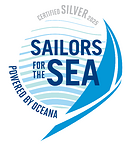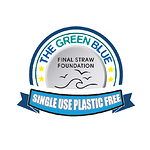BOAT OWNERS ANODES
Published 18:03 on 1 Nov 2023
To Cruiser Owners
Gordon Watson from Portsmouth University is a professor specialising in marine sciences.
He is particularly interested in the harmful effect of trace elements in the marine environment. One of the studies that Gordon has been associated with has identified the levels of copper that are released into the environment from boat antifouling, copper is toxic to aquatic life.
As part of their study into copper, the university have also identified that zinc from anodes is another pollutant that boat owners are responsible for. Traditionally zinc was used because it was cheap, but now high-grade aluminium costs less than zinc and it can be up to three times more effective.
We are hoping that we can encourage boat owners that are replacing their anodes, this winter, to purchase aluminum instead of the usual zinc.
Thank you for reading the doc we have prepared below:
Zinc anodes continue to be in common use in yachts. There are a number of reasons why owners might like to review this, and consider Aluminiuminstead:
- Zinc is thought to be more harmful to marine ecology than Aluminium. The Institute of Marine Sciences at Portsmouth University calculated that, in 2020, 349 tonnes of Zinc was released into the Solent from vessel anodes alone. Of that, an estimated 14-25 tonnes came from recreational vessels.
Zinc anodes also contain Cadmium. Metals accumulate in the water and in sediment on the sea bed, where they are ingested by organisms at all levels in the food chain. They cause damage to DNA, and as a result put additional reproductive stress on organisms. - The cost of the high grade Zinc required for anodes roughly doubled about 10 years ago, making Aluminium alloy anodes cheaper than Zinc.
- The electrochemical capacity of Aluminiumalloy is greater than Zinc. This results in alonger duration of protection (1.3-1.5 times as long) for a given size, so anodes can sometimes be smaller.
- Aluminium, being a slightly less noble metal than zinc, has a slightly higher driving voltage. It therefore works better in brackish water, for example in the Baltic Sea.
- A minor advantage of zinc is that it tends to wear more evenly, with less crater formation.
When changing from Zinc to Aluminium alloy, all external anodes should be replaced at the same time. This does not apply to zinc anodes in the engine water cooling system, if the two bodies of water are separate.
If an anode is eroding more quickly than expected, it's worth looking for an electrical problem causing stray current. Addressing this would reduce the amount of metal shed by the anodes into the environment. Prolonged connection to shore power without a galvanic isolator can have the same effect.
To minimise cost, and loss of metals into the environment, boat owners should follow the guidelines on how much anode is needed for their make and type of boat.
Useful information on Aluminium vs Zinc anodescan be found on the websites of MG Duff and Cathwell, companies that supply boat anodes.
John Radford LSC with the Clean Harbours Partnership






